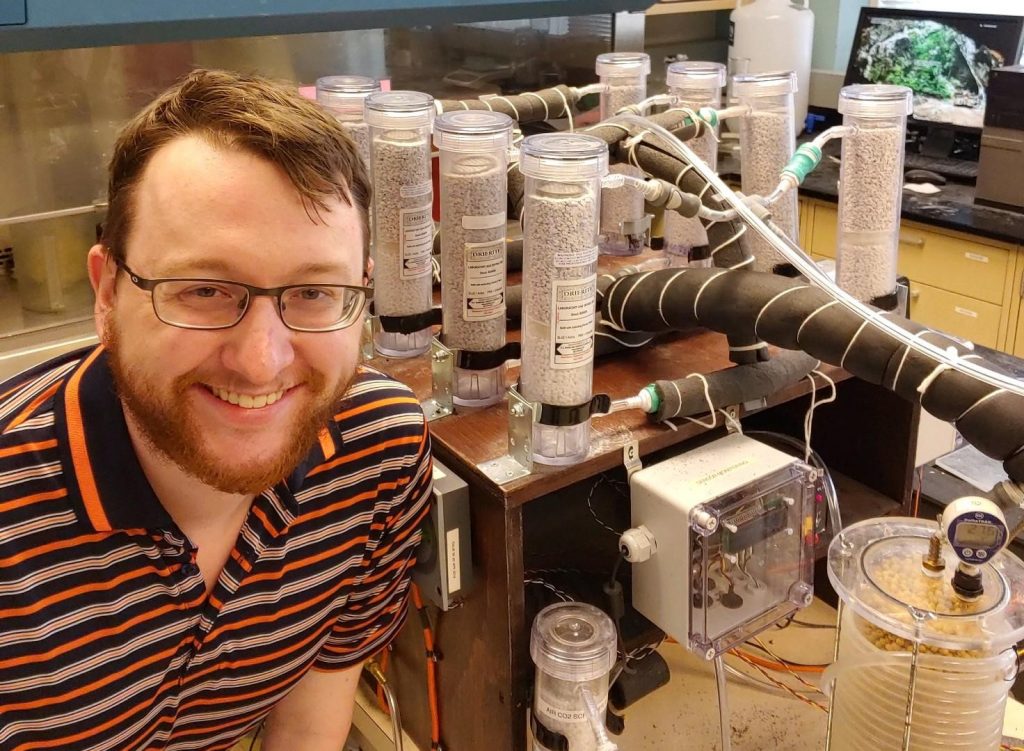PHL Scholars: Working toward storage time standards for soybeans
Educating future generations of postharvest loss researchers and practitioners is an important part of ADMI’s mission. To that end, ADMI developed the Postharvest Loss Reduction Scholarship (PHL Scholar) program that funds master’s and doctoral students conducting cutting-edge postharvest loss-related research in different departments at the College of ACES. Over the past few years, these University of Illinois students have been making important contributions to ADMI-funded research projects in addition to their own work.
By Loren W. Steinman, PHL Scholar
I am in my second year working on my Master’s of Science in Agricultural and Biological Engineering at the University of Illinois. Hailing from rural eastern Nebraska, I graduated in 2019 with a Bachelor’s of Science in Biological Systems Engineering from the University of Nebraska-Lincoln. I began with a focus on biomedical engineering applications, but changed my focus after realizing my interest in biofuel production and agriculture. During my junior and senior years at Nebraska, I worked in a research lab studying lignocellulosic feedstocks, like corn stover, switchgrass, and red cedar wood. The intent was to see how those agricultural products could be used to produce biofuels and other fermentation products. Through that research, I made some connections to University of Illinois, leading to my pursuits in Urbana.
Since I come from a rural background, I knew about postharvest losses on the farm, but my discussions with professors and colleagues have taught me a lot about PHL. My research at Illinois as a PHL Scholar is concentrated on postharvest dry matter loss (DML) in soybeans. DML is an indicator for overall quality reduction in cereal crops. Although soybeans are oilseeds, predicting DML is still the method employed. In the experimental part of my thesis studies, I’m operating a system that measures losses by accumulating carbon dioxide output in soybeans at 27.5°C and various moisture contents. Conditions for these experiments were chosen as they filled gaps in research conducted by other postharvest scholars in our lab group over the last several years. We have focused on building a greater understanding of respiratory carbohydrate losses in soybeans simulating conditions experienced in subtropical Brazil.
In the theoretical/computational part of my research, I have attempted to formulate a method of predicting soybean dry matter loss based on current research and empirical publications. This study was presented virtually at the American Society of Agricultural and Biological Engineers Annual International Meeting in July 2020 (link below). This project was designed to lay the groundwork for a preliminary ASABE Standard on soybean postharvest loss.
My time at Illinois has really opened my eyes to some of the agricultural health and safety and other extension work done by universities. It would be fulfilling to me to be able to help promote this kind of agricultural literacy.
I am very thankful to ADMI for allowing me to continue my education and study such an important part of our agricultural system. My bachelor’s degree was partially funded, and my master’s fully funded by ADM, thus I feel quite indebted to this company that is so invested in the future of our youth and our planet. I don’t know what my future holds, whether I continue with a Ph.D., pursue a research position in education/government, or an industrial career, but no matter what, ADM will have an important place in my heart.
Read about the work of other PHL Scholars: Ruben Chavez, Amir Jafari, and Gowthami Venkateswaran
Research publications:
Steinman, Loren W., et al. “Predictions of Maximum Allowable Storage Time of Soybeans Using ASAE D535 and Experimental Dry Matter Loss Data.” 2020 ASABE Annual International Virtual Meeting, July 13-15, 2020, American Society of Agricultural and Biological Engineers, 2020.
Pastorelli Latanze, Mariane, et al. “Changes in Soybean Quality under Controlled Environmental Conditions Using Static Grain Respiration Measurement System.” 2020 ASABE Annual International Virtual Meeting, July 13-15, 2020, American Society of Agricultural and Biological Engineers, 2020. (contributor)
